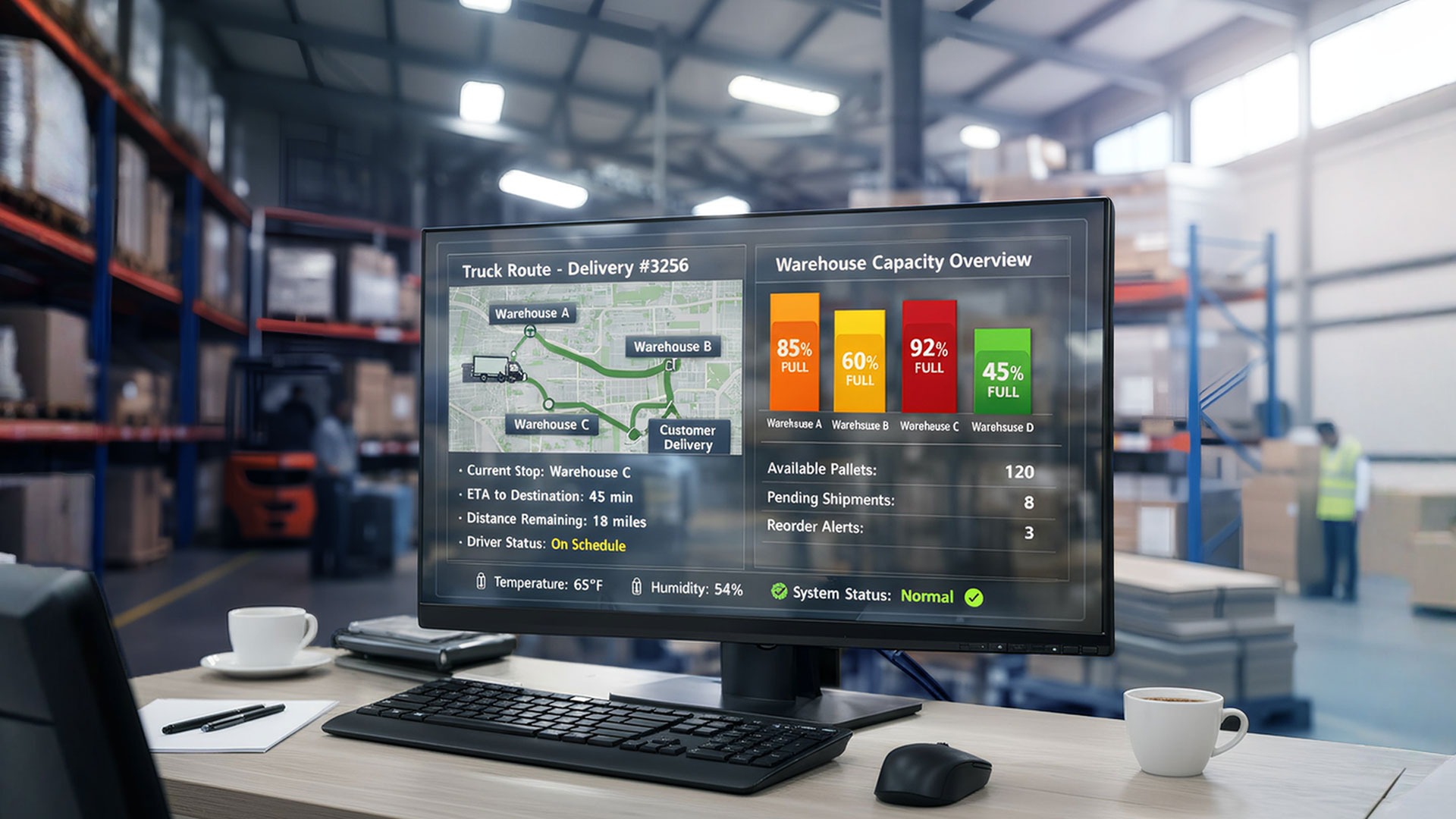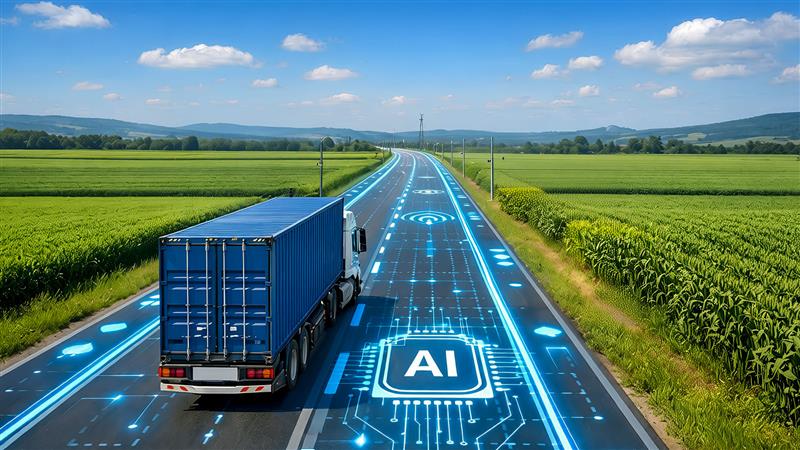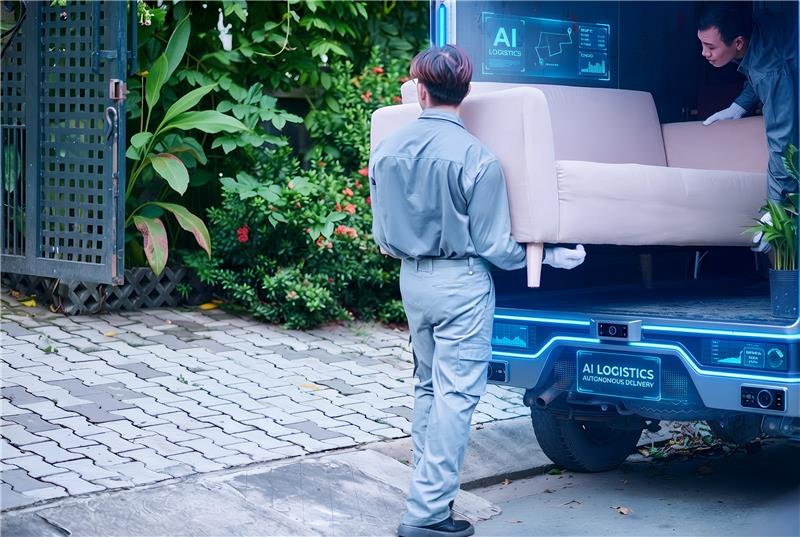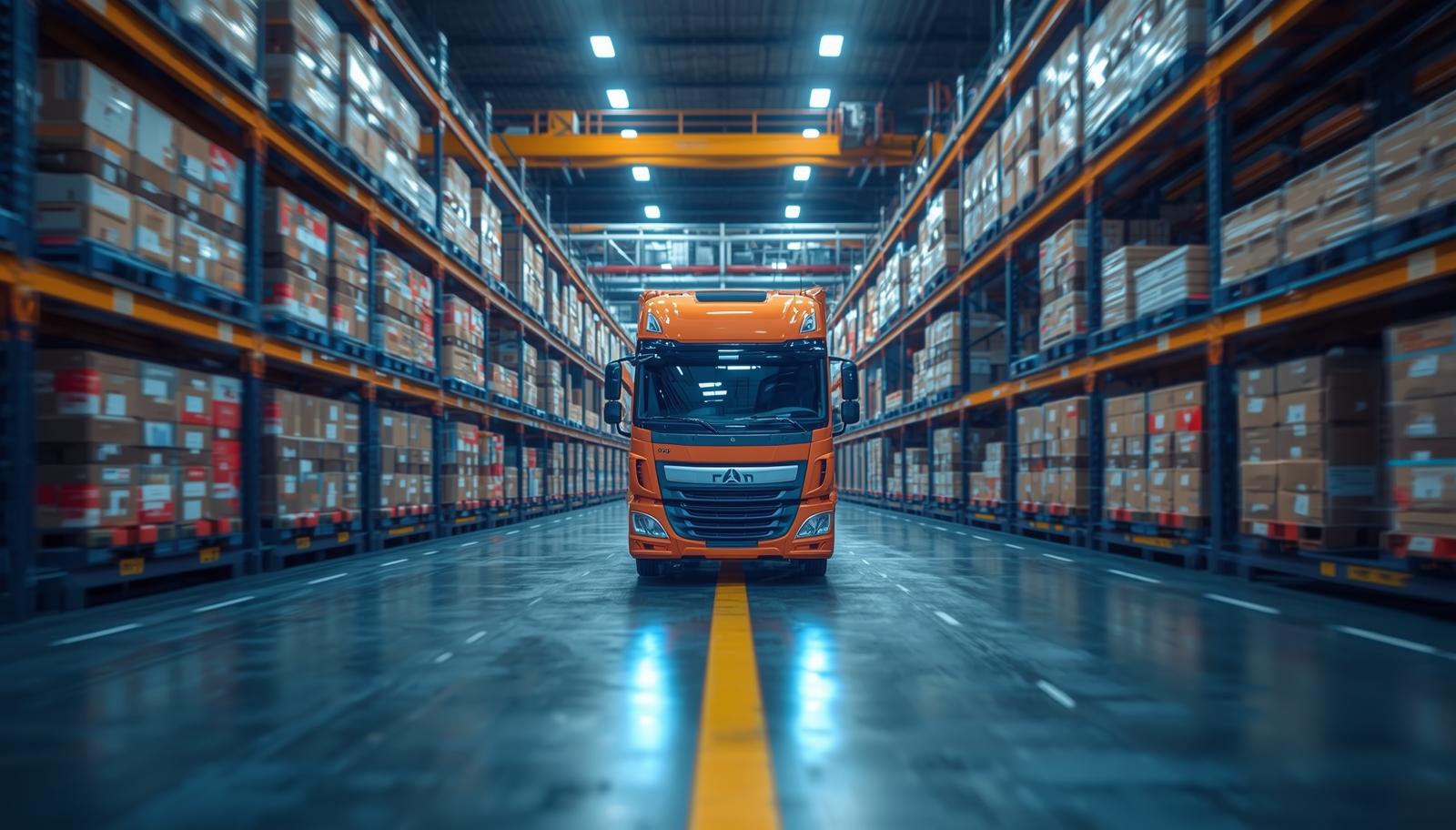
The Saudi desert, with its vast expanses and relentless heat, has been traveled by desert caravans of camels carrying fine fabrics, dried fruit, precious metals, and spices for centuries.
The sustainable sands and caravans of the past have been replaced with trucks and roads that deliver goods across the country, region, and even the world. The trucking industry in Saudi Arabia is on the brink of a significant transformation driven by technological advancements and sustainability initiatives.
Picture self-driving trucks navigating the desert autonomously, electric vehicles reducing carbon emissions, and real-time diagnostic systems preventing breakdowns before they occur. In this article, we’ll discuss the impact of technology and sustainability in the Saudi trucking industry through the fictional story of Ahmed, an experienced truck driver.
Ahmed has spent years navigating these challenging terrains. While he values the open road and the camaraderie among fellow drivers, the increasing pace of automation, long hours, and frequent mechanical issues are becoming burdensome. One particularly hot afternoon, Ahmed faces yet another engine problem far from the nearest town. At this moment, he receives a notification from Wahyd Logistics, introducing him to the future of trucking—self-driving co-pilots, real-time diagnostics, and electric trucks.
This is the start of a new era for Saudi Arabia’s trucking industry. We’ll dive into how cutting-edge technology and sustainable practices are transforming the future of trucking, addressing the challenges faced by drivers like Ahmed.
Embracing the Future
The open highway stretches endlessly before Ahmed, the relentless sun a constant companion. Once, he loved the challenge of navigating these vast distances, but now, fatigue and the worry of breakdowns have become unwelcome passengers. Suddenly, his comm-link buzzes with a notification – a video showcasing a convoy of sleek, self-driving semis gliding effortlessly across the desert landscape. This isn’t science fiction; it’s the future of trucking, powered by Artificial Intelligence (AI).
- Self-Driving Semis: Imagine Ahmed behind the wheel of one of these futuristic beasts, no longer battling fatigue but overseeing a co-pilot that tirelessly navigates the route, adheres to traffic regulations, and anticipates potential hazards. This is the tech revolution transforming the trucking industry.
Advanced Navigation
Forget dusty maps and unreliable GPS. Telematics and Route Optimization are like super-powered GPS on steroids. These systems are the brains behind the brawn, using real-time traffic data, weather conditions, and historical trends to create the most efficient routes possible.
- Real-Time Adjustments: Stuck in a desert traffic jam? No problem! The system will reroute Ahmed around the congestion, saving fuel and ensuring on-time delivery.
- Weather Adaptability: Telematics can factor in weather patterns, like those pesky sandstorms. Ahmed receives real-time alerts, allowing him to adjust his route and avoid the swirling dust cloud.
Preventing Breakdowns
The bane of any trucker’s existence – the dreaded roadside breakdown. Predictive maintenance is here to save the day, like having a mechanic with a crystal ball.
- Health Monitoring: Sensors throughout the truck constantly monitor its health, feeding data into a sophisticated AI system. This system predicts potential issues before they become problems.
- Proactive Maintenance: Ahmed gets a notification about a part showing signs of wear and tear. He can schedule a quick pit stop to address the issue, preventing a major breakdown. With predictive maintenance, Ahmed spends less time stranded and more time on the open road.
Saudi Arabia is embracing sustainability in its trucking industry, driven by global environmental concerns and the need for efficiency. Here’s how:
Sustainable Practices
A new wave of sustainable practices is transforming the trucking industry, paving the way for a cleaner and more efficient future.
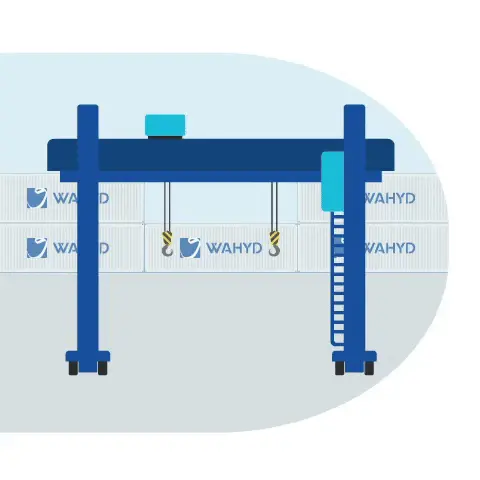
Clean Energy Powers the Road Ahead
- Electric Trucks: Imagine Ahmed, our seasoned trucker, rolling into a bustling city with a silent hum. Electric trucks are revolutionizing urban deliveries, offering zero-emission solutions. Companies like Tesla are leading the charge with their Semi, boasting impressive ranges on a single charge. This not only tackles pollution concerns but also creates a quieter experience for city dwellers.
- Alternative Fuels: For long-distance hauls, alternative fuels offer a cleaner-burning option compared to traditional diesel. Biofuels, derived from recycled cooking oil or other organic materials, provide a sustainable solution by utilizing waste products. Hydrogen fuel cells, though still under development, hold immense promise. These powerhouses emit only water vapor, making them an eco-friendly choice for the future.
Smarter Technology, Smoother Operations
- Advanced Telematics & Route Optimization: Gone are the days of dusty maps and unreliable GPS. Telematics systems leverage real-time data to create the most efficient routes possible. Stuck in a desert traffic jam? No problem! The system reroutes Ahmed, saving fuel and ensuring on-time deliveries. Additionally, by minimizing unnecessary idling, these systems further reduce emissions.
- Eco-Driving Training: Fuel efficiency isn’t just about the truck itself. Driver training programs equip Ahmed with eco-friendly driving techniques like smooth acceleration and braking, maximizing fuel economy on long journeys. Incentive programs that reward drivers for meeting fuel efficiency targets further promote sustainable practices.
Building a Greener Logistics Ecosystem
- Renewable Energy-Powered Warehouses: Logistics hubs are adopting sustainable practices as well. Solar panels in warehouses and distribution centers reduce reliance on fossil fuels, lowering the industry’s overall environmental footprint. Smart energy management systems further optimize power usage, minimizing wasted energy.
- Recycling and Waste Management: The trucking industry is embracing a circular economy by implementing recycling programs for truck parts and materials. Additionally, waste reduction initiatives aim to minimize and responsibly manage waste generated by logistics operations.
By integrating these sustainable practices, Saudi Arabia’s trucking industry is not only becoming more efficient but also contributing to a cleaner future.
The road to a sustainable future in trucking is paved with collaboration. It’s a team effort where government, logistics companies, and tech providers work together to create a cleaner, more efficient industry.
Building the Infrastructure for Change
Imagine Ahmed cruising in his electric semi. Where does he recharge on a long desert journey? The government, alongside logistics companies and tech providers, invests in a network of charging stations along key routes. This ensures electric trucks are viable for long-haul deliveries, not just city commutes.
Equipping the Workforce for the Future
New technologies need skilled workers. Picture Ahmed is struggling with an AI co-pilot system. Logistics companies and tech providers can create training programs to equip drivers with the skills to operate and maintain these innovations. This smooth transition maximizes the benefits of these advancements.
Guiding the Way with Clear Regulations
Self-driving trucks have immense potential, but safety is a big concern. The government, working with industry experts, can set clear regulations for autonomous vehicles. These rules ensure the safe integration of self-driving trucks, addressing concerns and building public trust.
New Opportunities
The trucking industry in Saudi Arabia is transforming, driven by innovation and sustainability. Imagine electric trucks moving silently through cities, long-haul journeys powered by biofuels and hydrogen fuel cells, and telematics systems optimizing routes to minimize fuel waste and emissions. AI co-pilots will enhance safety and reduce driver fatigue.
This shift isn’t just eco-friendly; it’s smart business. Lower fuel costs and more efficient fleet operations mean the future of trucking in Saudi Arabia will be greener and more profitable.
As the industry embraces AI and electric vehicle technology, new job opportunities will emerge in areas like AI maintenance and electric vehicle repair. This is a prospect for a skilled workforce ready to dive into sustainable trucking.
Shift into High Gear with Wahyd Logistics
At Wahyd Logistics, we’re leading the sustainable trucking revolution in Saudi Arabia. We’re integrating electric vehicles, alternative fuels, and AI technology into our operations. These innovations benefit the environment and create more efficient, cost-effective transportation solutions.
Contact Wahyd Logistics to discuss how these advancements can benefit your business and help navigate the road ahead. Together, we can build a cleaner, greener future for the trucking industry in Saudi Arabia.

